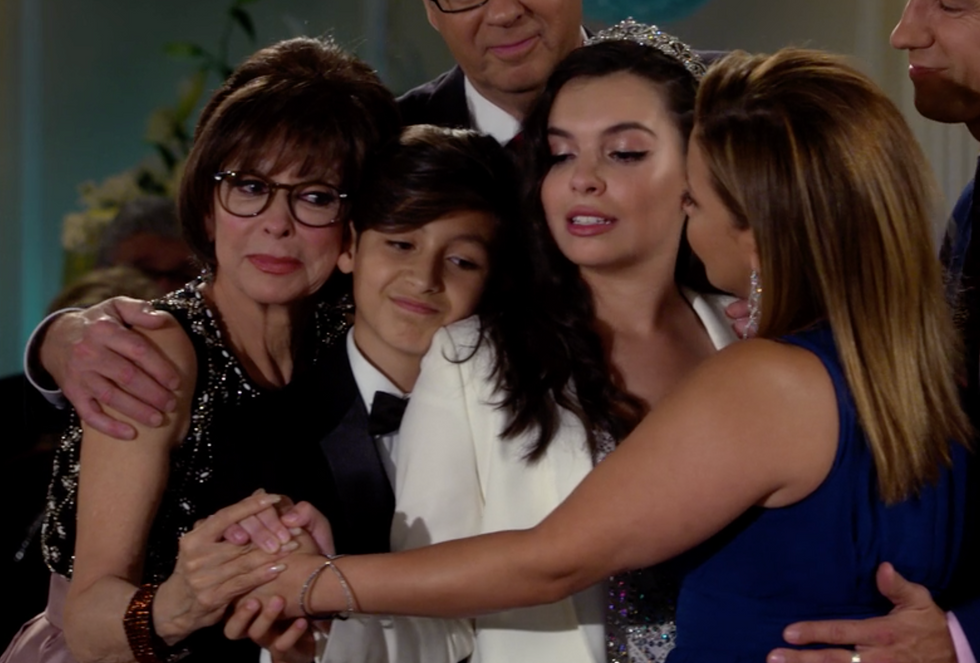While International Women's Day, which took place on March 8, may have passed, did you know that the whole of March is Women's History Month? There's no better time to celebrate women (and being a woman, if applicable) than during this month, and I know of no better way to celebrate than with some good ole tv!
If your spring break takes place in March (and even if it doesn't), why not take advantage of this opportunity to center a Netflix marathon around this theme? The second season of "One Day At A Time" recently premiered on Netflix, and it's perfect for the month of March. Ahead, I give 5 reasons why this show should be on your radar—especially during Women's History Month.
1. It's a female-centric show
Sadly, women are still underrepresented when it comes to television, with most network shows being lead by a (usually white, straight, and abled) male protagonist. While this trend is changing, a show like "One Day At A Time," whose main character Penelope is a single Cuban mother, is a gem that shouldn't be ignored.
2. It's got three generations of women living under one roof
More than just Penelope, the show also focuses on her mother Lydia and daughter Elena (and her son Alex, as well). Rarely seen on television, this show not only portrays the reality of three generations living under one roof, an experience shared by many Hispanic families, but showcases both the virtues and the challenges of this living arrangement.
3. The feminism is intersectional
Aside from the stellar female representation, "One Day At A Time" also excels in approaching issues of intersectionalism. The show never shies away from the Cuban-American experience, addressing topics such as discrimination, light-skinned privilege, and passing for white.
The mother, Penelope, struggles with PTSD, and one episode revolves around her reliance on anti-depressants, a subject treated with respect and empathy. Her daughter Elena is a proud lesbian and tireless activist who finally gets the girlfriend she deserves—Syd, who uses they/them pronouns.
Finally, Lydia's experience as an immigrant is never passed over or ignored, but rather seamlessly integrated into the show. No part of any women's identity is ever tokenized, but always treated as an integral and essential aspect of their larger personalities. No stock characters or stereotypes here—just fully fleshed-out women.
4. The actresses are amazing
Of course, these characters couldn't be fully realized without crediting the actresses embodying them. The amazing Rita Moreno is one of only twelve artists to have won an EGOT, and she shines as the sassy and dramatic Lydia, bringing life and depth to her character and even bringing you to tears at times.
As Penelope, Justine Machado expertly portrays a loving mother with a nuance that emanates her emotion through the screen and straight to your heart. Isabella Gomez, who personifies Elena with the perfect mix of sincerity and humor, is certainly an up-and-coming actress to keep your eye out for in the future.
5. There are women supporting women
Every family experiences in-fighting, especially when living in such close quarters. And of course, the generational gap results in several disagreements and misunderstandings, mainly concerning grandmother Lydia's more conservative views. But when it comes down the important stuff, Lydia always comes around, whether that's supporting Penelope's decision to go back on anti-depressants or Elena's decision to come out.
And when Elena is rejected by her father, it's Penelope and Lydia who defend her and love her unconditionally. In turn, it's Elena who encourages Lydia to become a citizen and helps her study to pass the test. Despite the occasional bickering and poking fun at each other, the heart of the show is the way these three women hold each other up regardless of anything else.
All in all, "One Day At A Time" is the perfect show for appreciating and celebrating womanhood—especially in the month of March, but its lessons are applicable and the representation commendable at any time of the year.


















